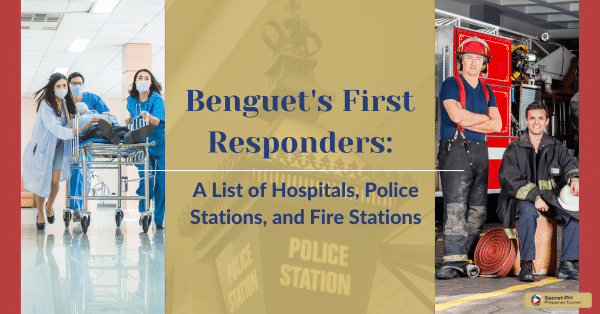The Philippines is a beautiful country that is home to many ex-pats and foreign workers. While the country is generally safe, emergencies can happen anytime and anywhere.
It’s essential for ex-pats and foreign workers to be prepared and familiar with the Philippine emergency response system and the essential emergency numbers to call in case of an emergency. From understanding the emergency response system to tips for calling emergency numbers and cultural considerations to keep in mind during an emergency.
In this article, we provide a comprehensive guide to navigating emergency numbers in the Philippines. We’ll cover everything for you to have the knowledge and confidence to handle emergencies and stay safe and secure while living and working in the Philippines.
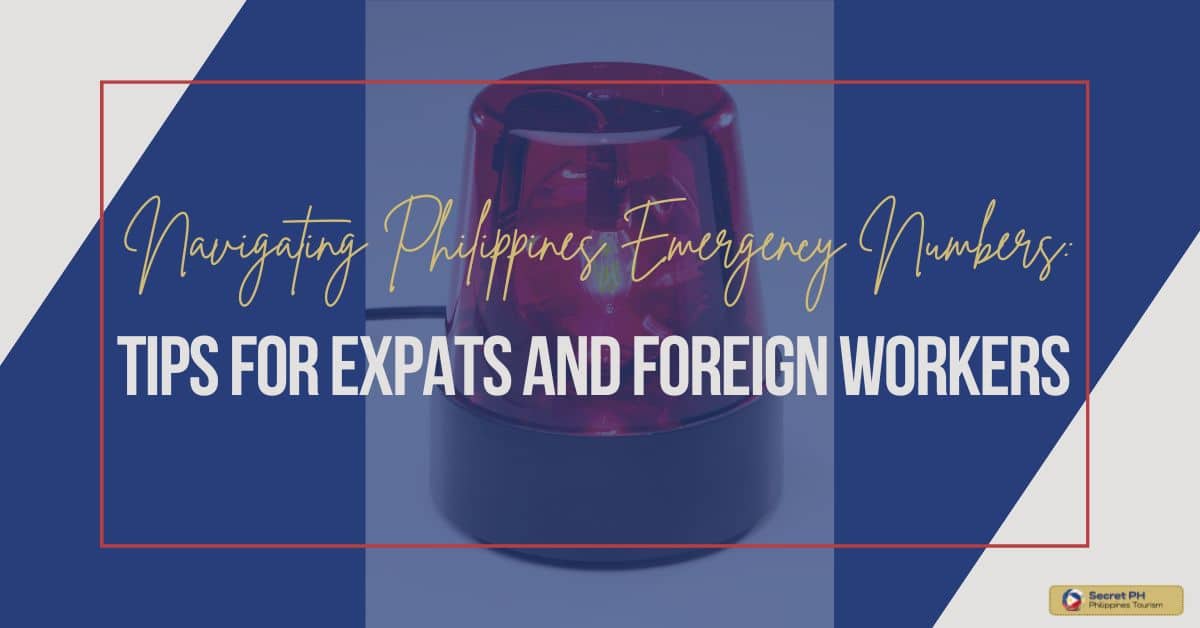
Importance of Knowing Emergency Numbers in the Philippines
The Philippines has a comprehensive emergency response system in place to help address any situation. Knowing the essential emergency numbers and understanding how they work is key to accessing the necessary help when an emergency arises. By being aware of the different types of emergency services available, you can ensure that you get timely help when needed.
In addition, staying informed about the cultural considerations and protocols for calling emergency numbers is important to ensure that you get the help you need in an efficient and effective manner. Understanding how the Philippine emergency response system works can give you peace of mind when living and working in the country. Knowing who to call and what to expect will enable you to stay safe and secure during times of crisis.
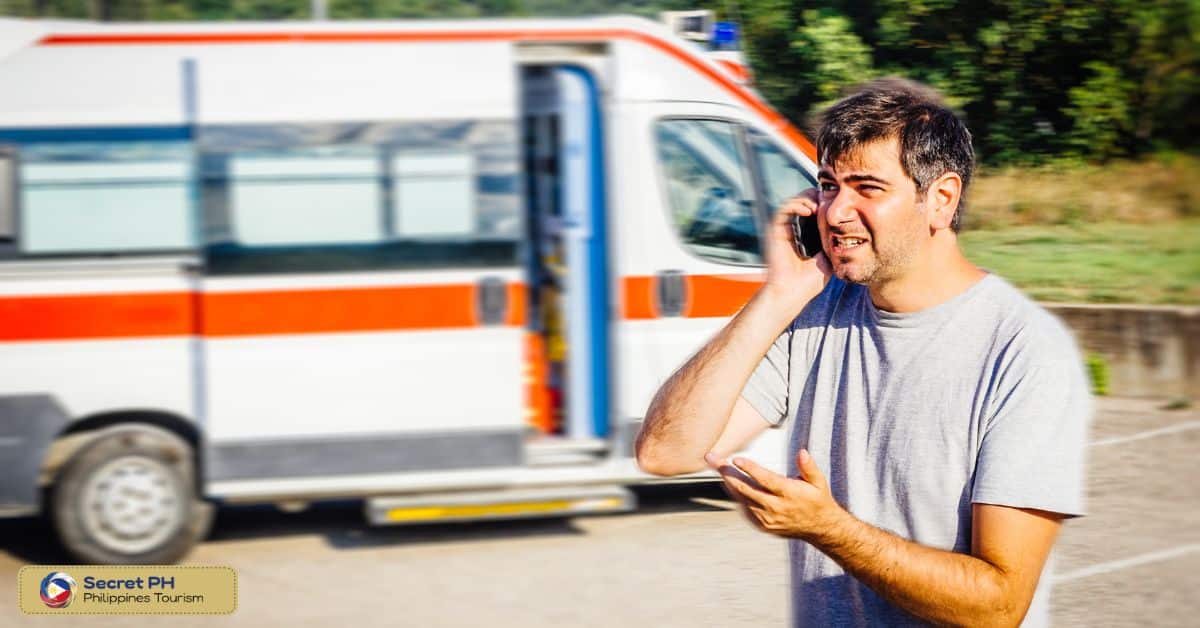
List of Essential Emergency Numbers for Expats and Foreign Workers
Living and working in a foreign country can be intimidating, especially during emergencies. As an ex-pat or foreign worker in the Philippines, it’s important to know the essential emergency contacts to call in case of any untoward incidents. Here’s a list of essential emergency numbers in the Philippines that you should save on your phone:
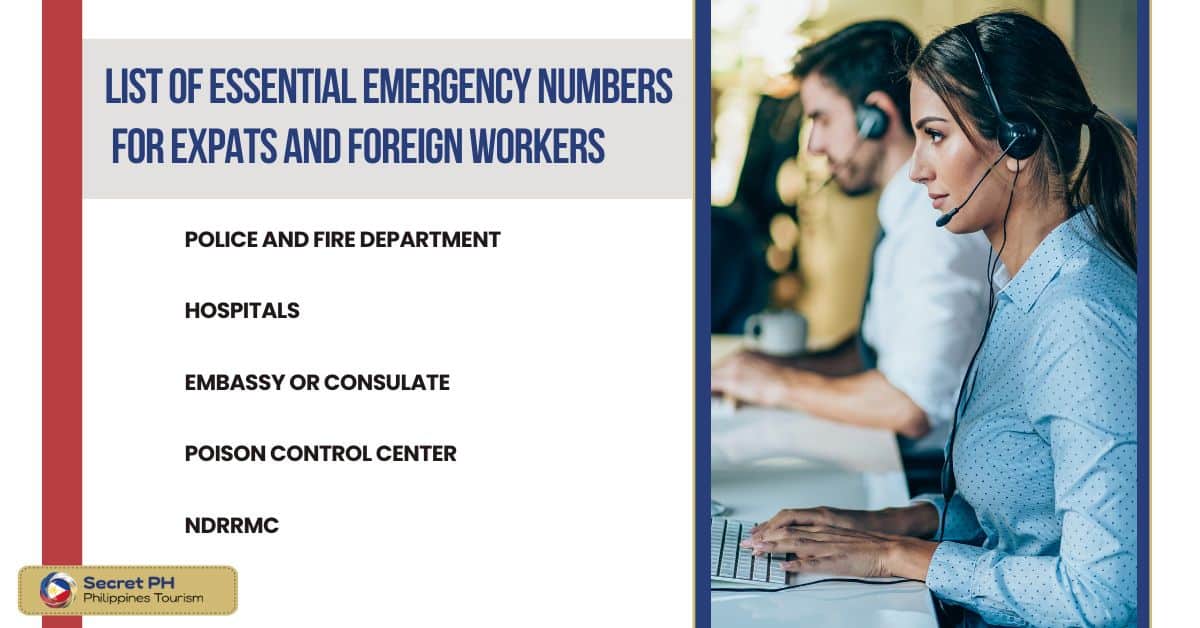
Police and Fire Department
In case of crime, accidents, or fire, the Philippine National Police (PNP) and the Bureau of Fire Protection (BFP) should be the first ones to call. The PNP can be reached through 117 or (02) 8723-0401, while the BFP can be reached through 160 or (02) 8426-0219.
Hospitals
In case of medical emergencies, it’s essential to know the nearest hospitals in your area, as well as their emergency contact numbers. Some of the major hospitals in the Philippines include:
Philippine General Hospital: (02) 8554-8400
St. Luke’s Medical Center Global City: (02) 8723-0101
Makati Medical Center: (02) 8888-8999
Embassy or Consulate
In case of any legal, financial, or other issues that require immediate attention from your home country, it’s important to know the contact information of your embassy or consulate in the Philippines. Here are some of the embassy or consulate numbers that you should save on your phone:
US Embassy: (02) 8845-9200
UK Embassy: (02) 8779-7031
Australian Embassy: (02) 8832-5281
Poison Control Center
In case of accidental poisoning, the Philippine General Hospital Poison Control Center can be reached at (02) 8524-1078 or (02) 8524-1723.
National Disaster Risk Reduction and Management Council
In case of natural disasters such as typhoons, earthquakes, or floods, the National Disaster Risk Reduction and Management Council can be reached through (02)8421-1920 or (02) 8421-1923.
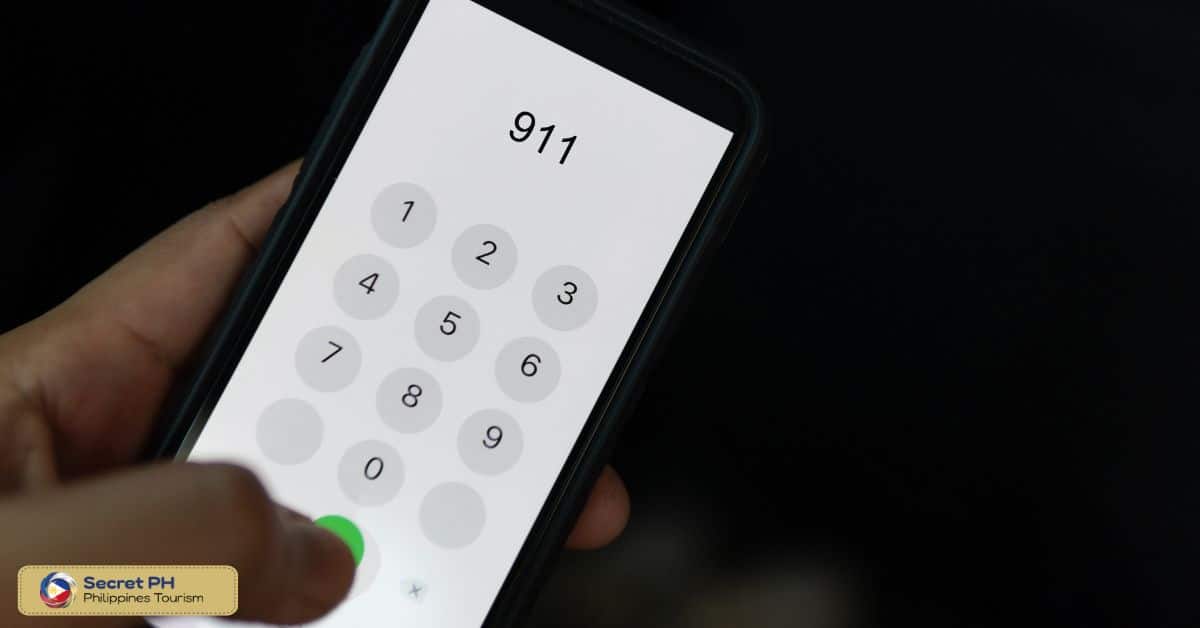
Understanding the Philippine Emergency Response System
The Philippine emergency response system is designed to provide timely and effective help during emergencies. When an emergency call is made, the operator will assess the situation.
Then connect the caller with the most appropriate service provider based on the nature of the emergency. Be it a medical team, police officers, firefighters, or other specialist responders.
To ensure that emergency services are provided quickly and efficiently, all calls to the designated numbers will be directed through a central system. The operator will provide information about the nature of the emergency.
Then it connects the caller with the most appropriate response unit in their vicinity. In addition, they may also provide guidance on how to handle the situation until help arrives or what other steps should be taken to make the situation safer.
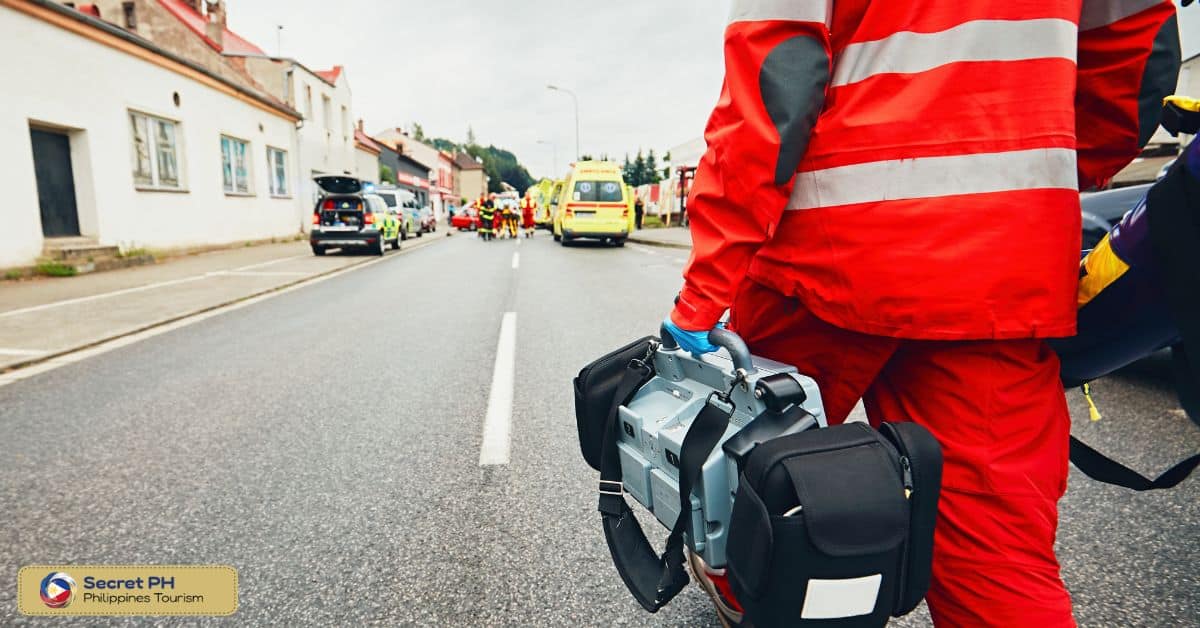
Tips for Calling Emergency Numbers in the Philippines
Calling emergency numbers in the Philippines can be a daunting task for ex-pats and foreign workers. Knowing how to contact the right authorities, what information to provide, and other cultural considerations are all important factors to keep in mind when calling. In this section of the article, we share some tips for making an effective call during an emergency in the Philippines.
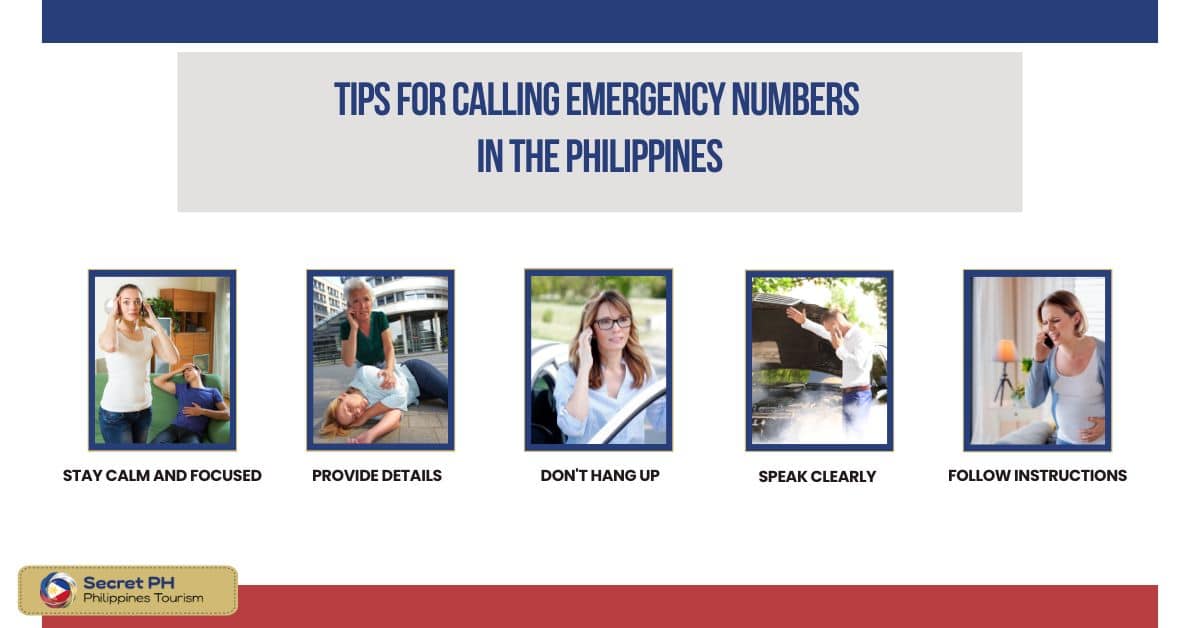
1. Stay calm and focused – Give accurate information on the emergency, your name, and your location.
2. Provide details – Give specific details such as the type of emergency (fire, robbery, medical), the number of people involved, and the address or location of the emergency.
3. Don’t hang up – Stay on the line unless instructed to do so. The operator may need additional information.
4. Speak clearly – Ensure that the operator understands you clearly. If you can’t provide information in Filipino or English, ask for an interpreter.
5. Follow instructions – Follow any instructions given by the operator. They are trained to help you during an emergency.

Preparing for Emergencies as an Expat or Foreign Worker in the Philippines
As an ex-pat or foreign worker living in the Philippines, it is important to be prepared for emergencies. Being in a new country can be challenging, but taking the necessary steps to protect yourself and your loved ones can ease some of the stress of living abroad.
Here are some tips for preparing for emergencies in the Philippines.
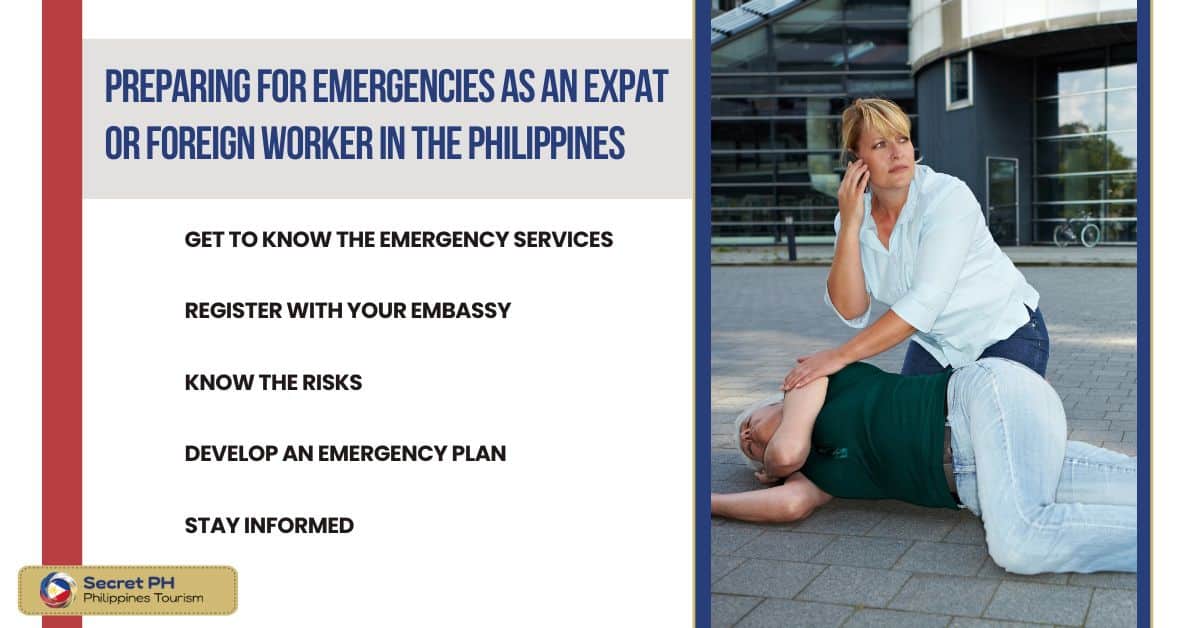
Get to know the emergency services
One of the first steps you should take when you arrive in the Philippines is to get to know the local emergency services. This includes the police, fire departments, and ambulance services. Find out what emergency numbers are in the Philippines and keep them handy.
Register with your embassy
Registering with your embassy is also important. This can help your government locate you in an emergency, as well as provide you with important information about current events and safety concerns.
Know the risks
It is important to understand the risks associated with living in the Philippines. This includes natural disasters such as typhoons and earthquakes, as well as political unrest and crime.
Develop an emergency plan
Developing an emergency plan can help you and your family stay safe in the event of an emergency. This includes identifying and discussing evacuation routes, and identifying a safe place to meet in case of separation. Also, prepare an emergency kit with important supplies such as food, water, and first aid supplies.
Stay informed
Staying informed is key to being prepared for emergencies. This includes keeping up-to-date with local news and weather reports, as well as subscribing to emergency alerts and notifications.

Dealing with Language Barriers in Emergency Situations
In emergency situations, language barriers can be a major obstacle. In the Philippines, English is widely spoken by most people. But there are still places where Filipino or local dialects are more common.
It’s important to understand that not everyone in the Philippines will be able to communicate in English. You may need to rely on interpreters if you find yourself in an emergency situation.
Having a basic understanding of the language and being able to communicate essential information. Your name, location, and type of emergency can be helpful when dealing with language barriers. It’s also important to ask for help if necessary and try to stay calm when communicating with authorities or other responders.
If possible, it’s a good idea to have a translator on hand or saved in your contacts. This can help ensure that you are able to get the help and assistance you need, even in difficult situations.
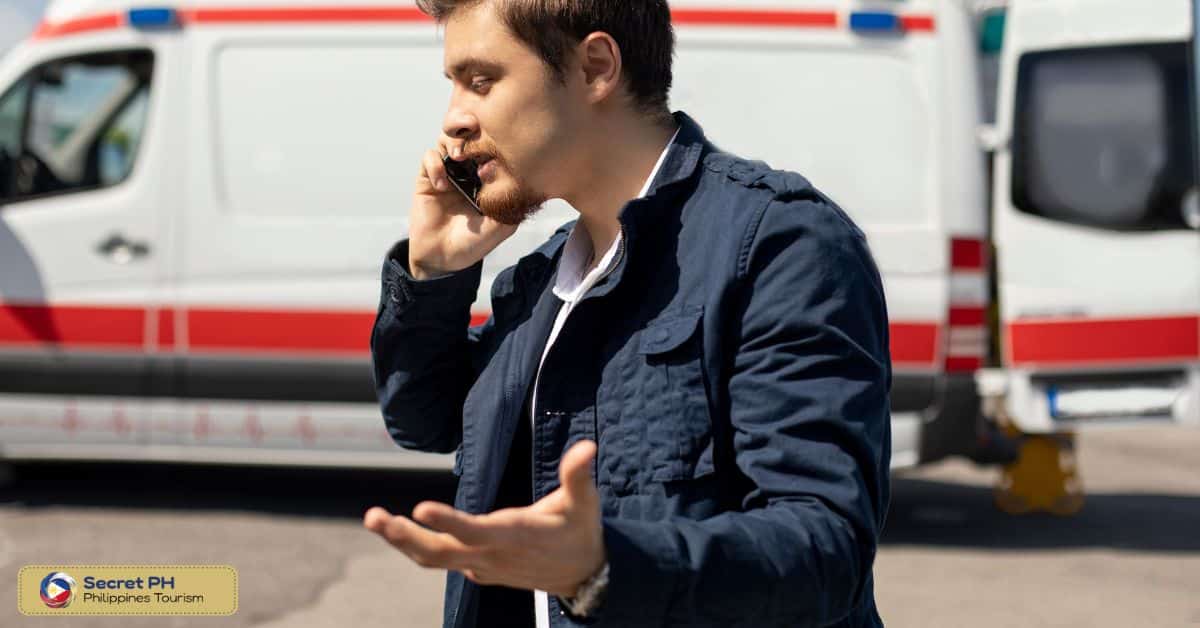
Cultural Considerations When Seeking Emergency Assistance in the Philippines
Cultural considerations are important when seeking emergency assistance in the Philippines. Knowing how to address responders and the cultural protocols for seeking help can ensure that you get the necessary help and guidance quickly and efficiently. The following section outlines some of the main cultural considerations to keep in mind when dealing with emergencies in the Philippines.
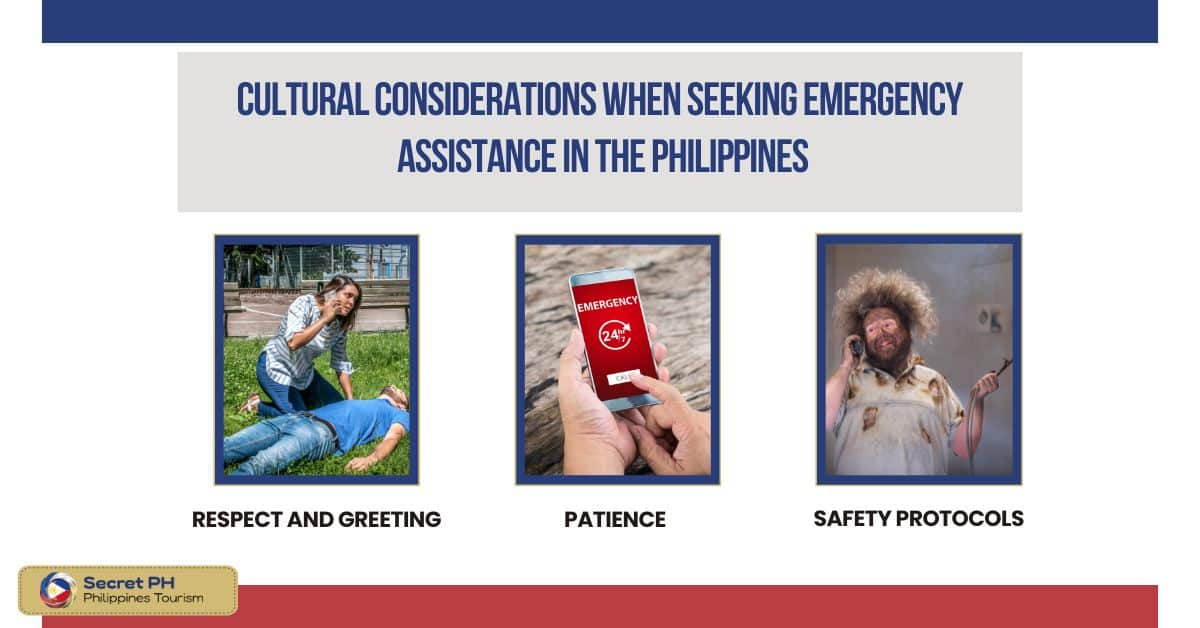
Respect and Greeting
Respect is an important value in the Philippines. When seeking emergency assistance, it’s important to show respect to responders by addressing them with appropriate titles and salutations. As a sign of politeness, it’s also customary to greet responders when they arrive on the scene.
Patience
When dealing with emergencies, patience is key. The response time to emergency calls can vary depending on the situation and responders may be delayed due to traffic or other factors.
It’s important to remain calm and patient while waiting for help. Staying composed in an emergency situation can help ensure that things are handled in a timely manner.
Safety Protocols
When dealing with emergency responders in the Philippines, it’s important to follow safety protocols. This includes following instructions, not interfering with the scene or responders, and refraining from taking photos or videos unless specifically requested by personnel.

In conclusion
Navigating emergency numbers in the Philippines is essential for ex-pats and foreign workers. From understanding the emergency response system to knowing the essential contact numbers. It’s important to be prepared and familiar with how to handle emergencies in the country.
Knowing who to call, what to expect, and cultural considerations can help ensure that you stay safe and secure during times of crisis. With the right knowledge and preparation, you can be confident that you will get the help and assistance you need in an emergency situation.



